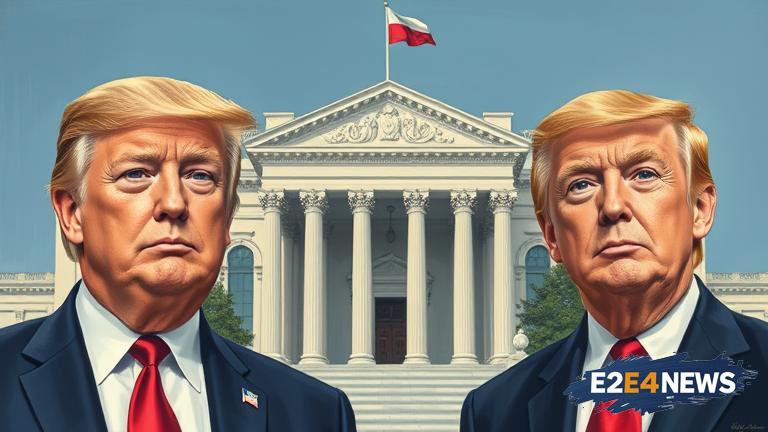The recent revelation that banks linked to former US President Donald Trump have been engaging in cryptocurrency deals with conservative groups has sent shockwaves through the financial and political spheres. This development has sparked intense debate and raised important questions about the relationship between politics, finance, and technology. At the heart of the controversy are several banks that have been identified as having ties to Trump, either through direct ownership or significant financial transactions. These banks have been found to be involved in various cryptocurrency ventures, including investments and transactions, with conservative groups and individuals. The nature of these deals has not been fully disclosed, leading to speculation and concern among regulators, lawmakers, and the general public. Critics argue that such dealings could represent a conflict of interest, especially given Trump’s history of using his political influence to further his business interests. Moreover, the involvement of conservative groups in these cryptocurrency deals has led to accusations of political favoritism and the potential misuse of financial systems for political gain. The situation is further complicated by the lack of clear regulations surrounding cryptocurrency, which has created a legal and ethical gray area that companies and individuals are exploiting. As the cryptocurrency market continues to grow and evolve, the need for robust and transparent regulatory frameworks has become increasingly evident. The Trump-linked banks at the center of this controversy have thus far declined to comment on the specifics of their dealings, citing client confidentiality and the sensitive nature of financial transactions. However, their silence has only served to fuel speculation and outrage, with many calling for greater transparency and accountability. The issue has also highlighted the broader challenges of regulating cryptocurrency, a task that has proven difficult due to its decentralized and often anonymous nature. Despite these challenges, there is a growing consensus among financial regulators and experts that stricter oversight is necessary to prevent the misuse of cryptocurrency for illicit activities, including money laundering and terrorist financing. In response to the controversy, several lawmakers have announced plans to introduce legislation aimed at increasing transparency in cryptocurrency transactions and strengthening regulations around political financing. These efforts are seen as crucial steps towards ensuring that financial systems are not exploited for political gain and that the integrity of democratic processes is protected. The controversy surrounding Trump-linked banks and their cryptocurrency deals with conservatives also underscores the importance of ethical considerations in financial dealings. As the financial sector becomes increasingly intertwined with political and technological developments, the need for a strong ethical framework that guides decision-making and ensures accountability has never been more pressing. In conclusion, the situation involving Trump-linked banks and their dealings in cryptocurrency with conservative groups represents a complex and multifaceted issue that intersects with themes of politics, finance, technology, and ethics. As the story continues to unfold, it is likely to have significant implications for how we understand and regulate the financial sector, particularly in relation to emerging technologies like cryptocurrency. The public and regulatory scrutiny of such dealings will be crucial in shaping the future of financial transactions and ensuring that they serve the broader interests of society rather than the narrow interests of a few. Ultimately, the goal should be to create a financial system that is transparent, accountable, and resistant to manipulation, where political influence does not undermine the integrity of financial markets. Achieving this goal will require concerted efforts from regulators, lawmakers, and the financial industry itself, as well as a commitment to ethical standards that prioritize fairness, transparency, and the public good.





